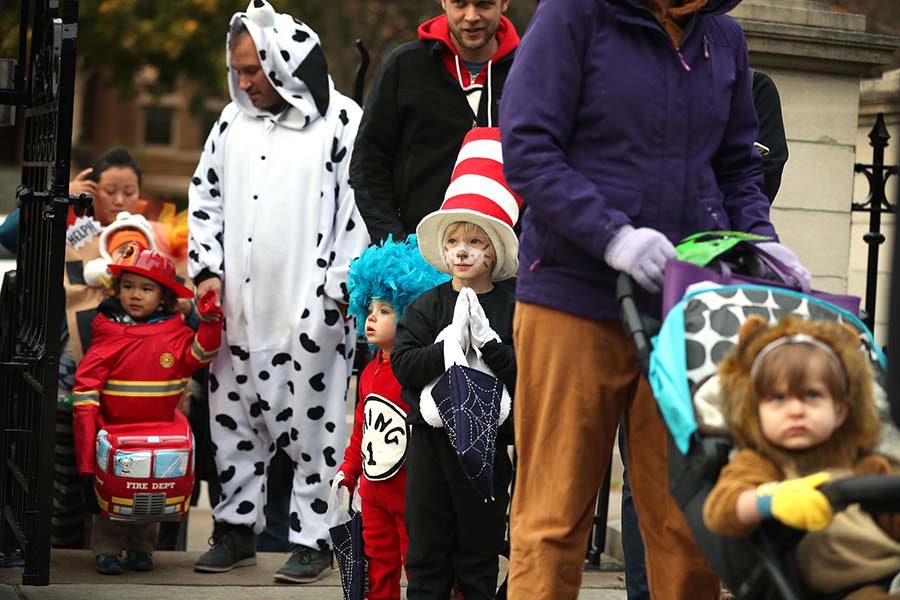Trick-Or-Treating: How Old Is Too Old?
As cities across the United States implement age restrictions for trick-or-treating, it brings into question their rationale and if these laws are ethically just.
PHOTO | TNS
Children and their families wait in line to greet Minnesota Gov. Mark Dayton during Halloween festivities at the Governor’s Mansion in St. Paul, Minn., on Tuesday, Oct. 31, 2017. Full-sized candy, apple cider and glow sticks were handed out. (Leila Navidi/Minneapolis Star Tribune/TNS)
When thinking of Halloween, the first timeless tradition to come to mind is trick-or-treating. The joy and thrill of going door to door dressed in costume, filling your bag to its tipping point with delicious candy is the highlight of all childhoods. But, in Chesapeake, Virginia, children over the age of 12 are cut off entirely from this joyous occasion.
City officials recently announced a new age restriction for trick-or-treaters. This restriction indicates that anyone over the age of 12 knocking door to door in request for candy could face a possible misdemeanor charge, according to the city’s ordinance code. This could amount to up to six months in jail or a possible fine of $25-100. Following backlash, Chesapeake officials claim that they are not “strictly enforcing” this law, but the controversy behind it still remains.
Chesapeake is not the only city to implement these changes. Cities across the United States have instituted a new age restriction this year in hopes of reducing crime caused by older children. These changes raise the question of when it is inappropriate to trick-or-treat and if it is even ethical to dictate that restriction.
Trick-or-treating is the foundation of Halloween. This tradition has been engraved into the American culture. In our technology-driven society where the youth is growing up too rapidly, it seems absurd to deprive them of this cherished tradition.
Kids should have the right to be kids. Trick-or-treating is an essential aspect of holding onto their childhood innocence. As they near their teens, children should be able to decide when they feel “too old” on their own terms.
Children typically stop trick-or-treating when they are 12-17 years old, according to a Today survey. There is no need to rush them during this process. If older children are out respectfully having fun, their age shouldn’t matter. Rather than punishing all for the actions of some, cities should search for positive solutions that provide alternatives.in
Implementing curfews and restrictions for teens is ineffective, according to research done by Campbell Collaboration. These attempts for increased safety fail to reduce crime and victimization. If the goal is to keep teens out of trouble, cities need to provide solutions, rather than implementing laws that hold little to no effect.
Cities can hold local festivals and parties designed and centered toward teens. If they provide outlets for older children during the Halloween season, they would worry less about the possible trouble teens would cause. Creating safe places for the youth is essential in increasing the safety of all in the city.
These age restrictions on trick-or-treating are cities’ way of putting band-aids on their greater issues with crime. Rather than taking such drastic and unethical measures, cities should look for solutions that provide safe places for teens to enjoy the Halloween festivities.



